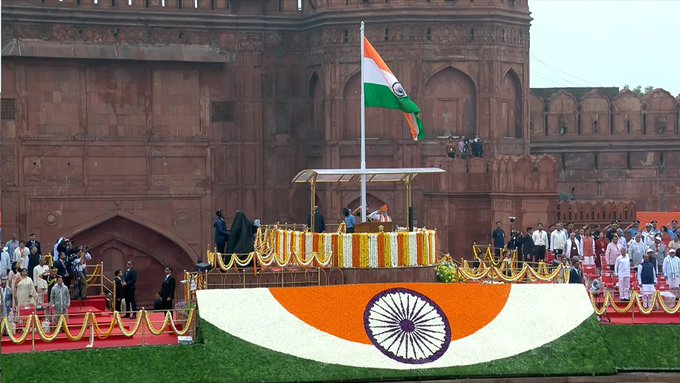New Delhi: Prime Minister Narendra Modi has pledged unwavering support for India’s farmers, livestock rearers, and fishermen, declaring he will “stand like a wall” against any policy threatening their livelihoods. His remarks, delivered during the 79th Independence Day address, came in response to steep tariffs recently announced by US President Donald Trump.
“India’s farmers, livestock keepers, and fishermen are our pride and priority. No external pressure will ever force us to compromise on their interests,” PM Modi said from the Red Fort, underscoring that protecting rural communities remains central to his government’s policy.
Tariff Tensions Escalate
Washington’s decision to impose a 50% tariff on Indian exports has been criticised by New Delhi as “unfair and unreasonable,” with officials linking the move to India’s continued purchase of Russian oil. The development has stirred political and economic friction between the two nations, both of whom have traditionally shared strong strategic ties.
Protests Across Rural India
The tariff hike has drawn sharp reactions from farmer unions and agricultural workers, who fear the decision will hurt export-dependent sectors. Demonstrations in several states have seen protesters burn effigies of Trump and demand stronger government action to safeguard market access.
Agriculture — A Long-Standing Sticking Point
Trade talks between India and the U.S. have repeatedly stalled over agricultural policy. Washington has sought greater entry for its farm and dairy products, while New Delhi has insisted on protecting domestic producers through subsidies, minimum support prices (MSP), and import restrictions.
In the financial year 2024–25, bilateral trade between India and the U.S. totalled $131.8 billion, with India exporting $86.5 billion worth of goods and importing $45.3 billion. While both sides have spoken of ambitions to push that figure to $500 billion, the agricultural deadlock remains a major obstacle.
By reasserting his stance on Independence Day, PM Modi signalled that any trade partnership with Washington will be shaped around — and not at the expense of — India’s rural economy.

